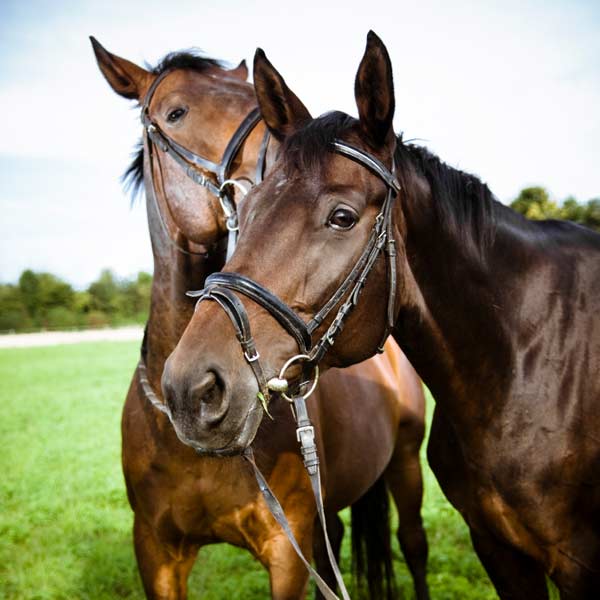Equestrian Competitors Should Have A Biosecurity Plan In Their Saddlebag

With this year’s horse events calendar rapidly filling up across Queensland, equestrian competitors and event organisers are being reminded of the importance of a carefully thought out biosecurity plan.
Queensland Chief Veterinary Officer Dr Rick Symons said a biosecurity plan was essential to minimising the risk of animal pests and diseases, including Hendra virus. “There are some major events coming up, so it’s timely to remind people of the importance of good biosecurity measures,” Dr Symons said. “There are a number of transmissible diseases, which affect horses and biosecurity plans are a way of reducing the risks from these and providing comfort for competitors. “Biosecurity Queensland works closely with equestrian groups and can provide the latest advice on what risk reduction steps to take when organising an event.” Dr Symons said Horse Health Declarations and waybills were mandatory for many horse events, and horse exhibitors and competitors must comply with a number of entry requirements. “Horse Health Declarations and waybills help to create a safe environment for exhibitors and competitors, while ensuring event organisers have accurate records on the number of animals arriving and leaving a show,” he said. “These documents allow for horses to be traced in the event of an emergency animal disease. “It’s also a legal requirement that all properties in Queensland with horses are registered with Biosecurity Queensland and obtain a Property Identification Code (PIC). “If there is an animal disease incident, a PIC will ensure a rapid and accurate response by allowing quick identification of properties that may be at risk. “Failure to supply the correct paperwork could result in horses not being allowed to participate in some events.” Dr Symons said owners must also meet horse movement requirements. “Horse exhibitors and competitors must have correct travel permits in their possession to comply with cattle tick requirements when moving horses from the tick infected zone to the tick-free zone,” he said. “This is particularly important given that some parts of Queensland have experienced major tick infestations this year. "So the message for event organisers is remember your biosecurity plans and for competitors, don’t forget your Horse Health Declarations and PIC.” Biosecurity Queensland regularly conducts workshops to educate equestrian event organisers about reducing the risk of disease at events. The workshops cover information on biosecurity planning for horse events including venue maps, biosecurity rules, record keeping, isolation areas, moving horses across the tick line, Horse Health Declarations, waybills, and property registration. For more information on moving your horse, attending equestrian events or hosting a workshop, visit www.biosecurity.qld.gov.au or call 13 25 23.

